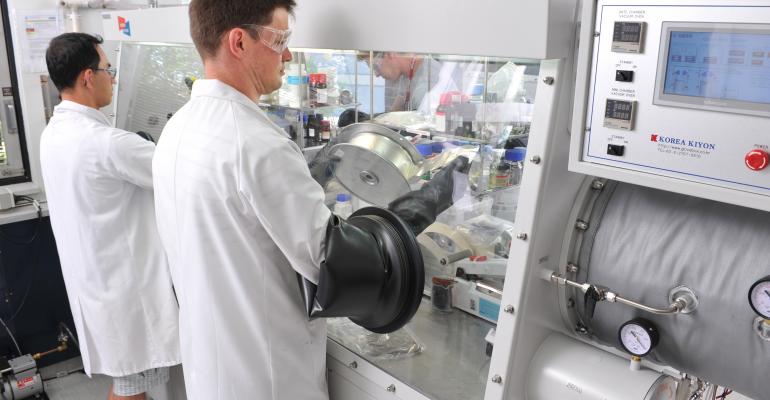The next generation of rechargeable lithium batteries for electric vehicles is emerging from a salt bath for the same reasons humans take a soak to relax, extend their lives and improve everyday performance.
Scientists from the government’s Commonwealth Scientific and Industrial Research Organization, working with researchers at the Royal Melbourne Institute of Technology and Queensland University of Technology, say pre-treating a battery’s lithium metal electrodes with an electrolyte salt solution extends the battery life and increases performance and safety.
It has the potential to improve EV range to a point where the alternative-propulsion systems could be competitive with traditional gasoline-powered vehicles.
CSIRO battery researcher Adam Best says results from the method are impressive.
“Our research has shown by pre-treating lithium-metal electrodes, we can create batteries with charge efficiency that greatly exceeds standard lithium batteries,” Best says in a statement.
The pre-treatment process involves the immersion of lithium-metal electrodes in an electrolyte bath containing a mixture of ionic liquids and lithium salt before the batteries are assembled.
Ionic liquids, or room-temperature molten salts, are a unique class of material. They are colorless, odorless and non-flammable. Used in batteries, they can prevent the risk of fire and explosion, a known issue with some batteries.
The salt bath pre-treatment adds a protective film onto the surface of the electrode, which helps stabilize the battery during operation.
“The pre-treatment reduces the breakdown of electrolytes during operation, which is what determines the battery’s increased performance and lifetime,” Best says.
Batteries with the process also can spend up to one year on the shelf without performance losses.
QUT researcher Anthony O’Mullane says the technology is fairly straight forward.
“The pre-treatment process is readily transferrable to existing manufacturing processes,” he says.
CSIRO holds patents for the electrolyte salt solutions, which come in a range of chemical compositions.
The Australian researchers are developing batteries based on the technology and pursuing partners to help bring the technology to market. The findings were first published in the journal Nature Communications.





